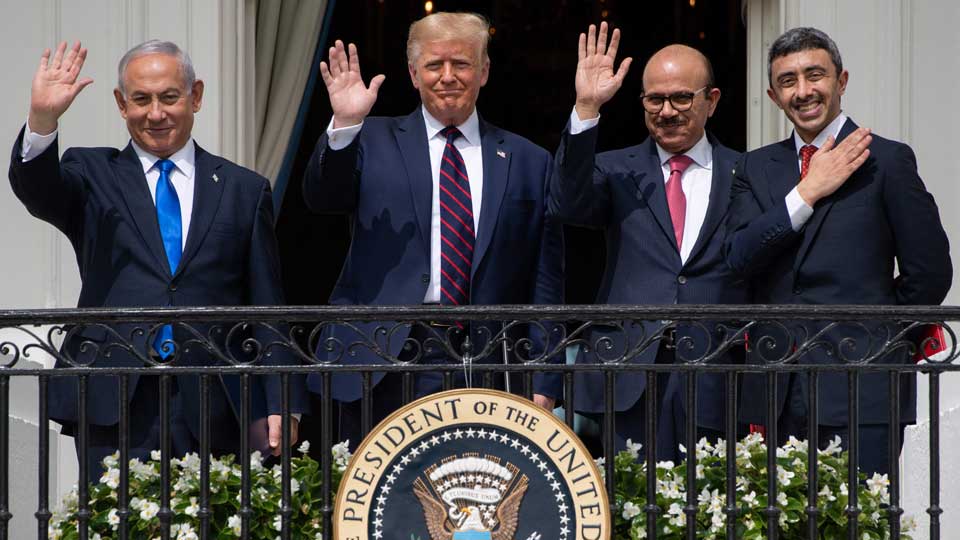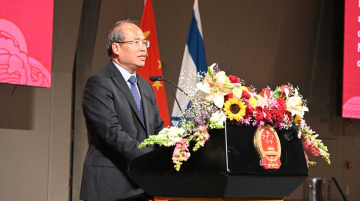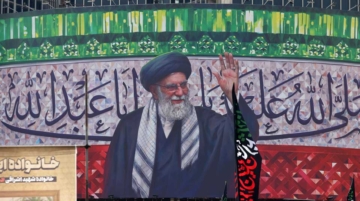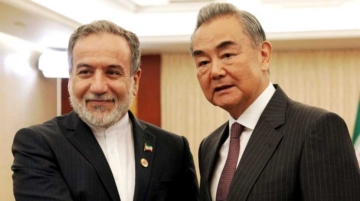
By Giorgia Facchini
On November 27, a ceasefire agreement between Israel and Lebanon came into effect, aiming to halt hostilities between the Israel Defense Forces (IDF) and the Iran-backed Lebanese militant group Hezbollah, who had been exchanging fire since the Hamas-led attack on Israel on October 7, 2023. Hezbollah framed its actions as an expression of solidarity with the Palestinian resistance against Israeli occupation, while Israel claimed its operations were to enable the safe return of civilians to evacuated areas along the border with Lebanon.
The conflict escalated with Israel’s exploding pager attack and bombing campaign, which resulted in the deaths of most of Hezbollah’s leadership, including Hassan Nasrallah, and thousands of Lebanese civilians. The IDF subsequently launched a ground invasion of southern Lebanon with the goal of dismantling Hezbollah’s military infrastructure. The ceasefire, brokered by France and the United States, has so far brought a pause to the fighting, with the IDF pulling back to Israel and Hezbollah retreating to north of the Litani River. However, peace appears increasingly untenable as both sides accuse each other of violating the agreement.
Against this backdrop, this edition of the ChinaMed Observer provides an overview of how Chinese experts and commentators have framed Washington’s role in the Middle East, Israel’s strategy, and the prospects for a lasting ceasefire in the region. The prevailing view identifies the United States as the primary instigator for the ongoing violence, owing to its unwavering support for Israeli military actions. Interestingly, even Tel Aviv has received less Chinese criticism than Washington, as Chinese media increasingly acknowledge Israeli security concerns as relevant.
However, despite criticism of US partiality and its inability to restrain Israel, Chinese experts continue to view Washington as indispensable in the Middle East, acknowledging its constructive role in brokering the (likely very temporary) ceasefire in Lebanon. However, regarding the broader Middle East conflict, no other actor —including Beijing—is perceived by the Chinese commentariat as an ideal mediator. Donald Trump’s return to the US presidency introduces additional uncertainties, with ongoing debates about which regional actors might ultimately benefit from his second term.
The United States as the Enabler of Regional Instability
As is typical in Chinese commentaries on international politics, the United States is the target of heavy criticism. Regarding the current situation in the Middle East, the US stands accused of being the principal source of instability, whether through its support of Israel’s military campaigns or its own policies. However, there is some debate as to why or how Washington enables Tel Aviv.
Some Chinese analysts emphasize what they perceive as the United States’ single-minded and uncritical support for Israeli aggression. For example, Sun Degang, director of the Center for Middle Eastern Studies at Fudan University, claimed that “the US continues to indulge Israel and tacitly allows it to take any unrestricted military action.”[1] Similar sentiments have been echoed by elsewhere in Chinese media, with the Global Times stating:
“The United States, in particular, has played a role as morally bankrupt as it is historically myopic. While professing to call for peace, Washington has continued to provide substantial military aid to Israel, effectively enabling the continuation of the conflict”.[2]
Tian Feilong, associate professor at Beihang University’s Law School, went further, arguing that:
“The fundamental reason is that the United States has unprincipled favoritism toward Israel in Security Council procedures. The UN system is rooted in the peace consensus and great power responsibility after World War II, but the division of great powers in the Security Council and the decline of great power responsibility have led to the continued evolution of the Palestinian tragedy. There is no possibility that the Israeli-Palestinian conflict will turn to a peaceful track. This is the Achilles heel of the contemporary international legal order.”[3]
Other Chinese analysts have instead emphasized the limits of American influence over Israel, especially under Prime Minister Benjamin Netanyahu. These commentators argue that US leaders, constrained by domestic and foreign policy considerations, are forced to extend a blank check to the Israeli government. Wang Jin, associate professor at the Institute of Middle East Studies at Northwest University, claimed that the US often neither fully understands Israeli intentions nor “has a way to fully influence and control Israel’s decision-making.”[4]
Beyond its support for Israel, other American actions have also been criticized for contributing to regional instability, such as the US airstrikes on twelve Houthi targets in Yemen on October 4. According to Ding Long, professor at the Middle East Studies Institute of Shanghai International Studies University (SISU), “it has been proven that the US has achieved little but exacerbated the Middle East situation.”[5] Ding further argued that “the origin of the Middle East tensions is the US’ partiality in the conflict and its obsession with using force, which has made it difficult for international mediation efforts to achieve any meaningful results.” Ding’s perspective is not isolated; rather, it is a long-standing and widely shared component of the Chinese narrative on Middle Eastern politics.
In any case, the American strategy is widely seen as one doomed to fail. Liu Zhongmin, a professor at the Middle East Studies Institute of SISU, stated:
“The US has adopted a strategy of dynamic military adjustments. Whenever the crisis escalates, it enhances its military presence in the Middle East to demonstrate support for Israel and deter the Iran-led axis of resistance. However, as tensions between Israel and Iran escalate, achieving this balance will be increasingly challenging.”
Many Chinese experts are also pessimistic about the future of the Israel-Lebanon ceasefire deal. Sun Degang affirmed that this agreement is merely a temporary pause, as both the “Israel Defense Forces and Hezbollah are likely to take advantage of this ceasefire to rest and regroup, positioning themselves for future actions.”[8] This prediction has proven prescient, as both sides have already accused each other of violating the agreement, with Israel having already conducted several air strikes.
In his analysis, Ding Long pointed out that the ceasefire in Lebanon does not address the main conflict in Gaza Strip, especially as Israel remains fixed on completely eliminating Hamas.[9] That said, Ding acknowledged the significance of even this ceasefire, noting that as the Biden administration nears its end, this limited agreement could serve as a “diplomatic legacy to barely save its reputation” after a series of failures and disappointments. Qin Tian, deputy director of the Institute of Middle East Studies at the China Institutes of Contemporary International Relations, also gave some credit to the ceasefire, as it could help to reduce the overall intensity of the conflict in the Middle East.[11]
Looking for Mediators and China’s Role
Searching for countries that could rise to the occasion and help bring the conflict to an end, Chinese analysts have concluded that the region lacks a suitable mediator capable of de-escalating the situation. Although neighboring countries have condemned Israel, they have not taken meaningful action, which Israel may interpret as a sign of weakness. For Han Jianwei, an expert from the Middle East Studies Institute at SISU, this detachment is why Israel “is becoming increasingly fearless and intends to eliminate the Axis of Resistance in one fell swoop.”[12]
Qatar and Egypt are frequently mentioned in the Chinese media as potential mediators, but neither seems willing to engage directly with Hezbollah. Instead, their efforts are more likely to involve initiating dialogue with the Lebanese government, which, however, lacks authority over Hezbollah-controlled areas in southern Lebanon. Lately, however, both Doha and Cairo have preferred collaborating with Israeli officials, as evidenced by an Egyptian delegation’s visit to Israel to contribute to the formulation of a ceasefire agreement.[13] According to Wang Jin, associate professor at the Institute of Middle Eastern Studies at Northwest University in Xi’an, the problem is that “Hezbollah controls of parts of Lebanon and has its own military branch, and once a large-scale conflict breaks out, it probably cannot be handled through conventional diplomatic mediation.”[14]
Shi Bowei, a lecturer from the Department of Political Science at the Party School of Zhejiang Provincial CPC Committee, focuses on the role of the United States. He argues that: “the US, as a key stakeholder, must abandon its severely biased stance that favors Israel, stop fueling the fire, and instead adopt a fair and just position.”[15] In the same article, he adds that: “other major international powers, including the UK and France, should also adopt a responsible attitude, quickly recognize Palestine as a sovereign state, strengthen dialogue and cooperation to resolve the Middle East conflict, and initiate timely diplomatic efforts to prevent further instability.” Shi underscored the need for the US and other international actors to initiate diplomatic dialogue to resolve the conflict. These considerations are exemplary of the dual perspective within the Chinese narrative on the United States and the region: Washington is, at the same time, a source of instability and an indispensable actor. Previous Chinese commentaries on the conflict in Syria showed a similar pattern.
As to China, there has been a notable shift in its official narrative concerning responsibility for the conflict. Moving away from solely blaming Israel, Chinese discourse has begun to acknowledge other factors. For instance, an editorial published by China Daily on October 7, 2024, explicitly recognized that the ongoing war began with the Hamas-led attack the previous year, marking a departure from past statements:
“After the Oct 7 Hamas attacks on Israel last year, Israeli leader Benjamin Netanyahu vowed to eliminate the threat of terrorism. At first, it was a war on Hamas, which killed 1,200 Israelis and took 250 others hostage in those attacks. Then, as the war in the Gaza Strip expanded, Israeli offensives have invoked counterattacks from Hezbollah in Lebanon, Houthis in Yemen, militia forces in Iraq, and finally Iran.”[17]
Subsequently, Foreign Ministry Spokesperson Mao Ning affirmed that: “the legitimate national rights of the Palestinian people need to be realized and the reasonable security concerns of Israel also need to be paid attention to. It has been China’s consistent position.”[18] That said, it is noteworthy, though not surprising, that Chinese officials continue to refrain from presenting their country as a possible mediator. Chinese experts have consistently adopted a cautious tone when discussing Beijing’s potential role, often emphasizing the limits of Chinese diplomatic initiatives.[19] Skepticism toward Chinese mediation is also pronounced among the parties to the conflict; the Beijing Declaration of July 2024 was met with mixed reactions, with both the Palestinians and the Israelis questioning China’s intentions and its capacity to shape the war’s trajectory. Similar reservations about Beijing’s diplomatic capabilities in the Middle East are echoed by experts from elsewhere in the region.
In Lieu of a Conclusion
We conclude this analysis with a recent article by Niu Xinchun, executive director of the China-Arab Research Institute at Ningxia University and one of the most insightful Chinese Middle East experts.[20]
Niu reviews Trump’s record in the region, highlighting the numerous initiatives undertaken during his first term, including the Abraham Accords, the lifting of sanctions on Sudan, and the recognition of Moroccan sovereignty over the entirety of Western Sahara. However, Niu contends that most of these initiatives, largely transactional in nature, failed to deliver meaningful change in the region while also leaving many of Washington’s partners disappointed.
This time around, Niu argues, both the US’ friends and foes are now better prepared for Trump, as well as more cautious. Although Iran might initially appear as the clear loser of Trump’s return, Niu notes that the two countries have already re-established contacts at the United Nations. Similarly, while Israel might seem the primary beneficiary of the incoming US administration, the speed at which the ceasefire with Hezbollah was achieved, Niu believes, reflects Israeli concerns over Trump’s inconsistency and unpredictability. Moreover, Saudi Arabia, despite its closer ideational affinity with Trump and the Republicans, will hardly embrace the new administration. On critical issues such as the Palestinian issue and Sino-Saudi cooperation, Niu predicts that Riyadh will also tread carefully.
As China and the Middle East hedge their bets and wait for Trump’s inauguration, Niu writes that “the excitement [for the return of transactional Trump] is only temporary—fastening their seatbelts is what truly matters.”
Giorgia FACCHINI is a Research Fellow at the ChinaMed Project. She is also a graduate student in International Relations and Institutions of Asia and Africa at the University of Naples “L’Orientale.” Her research interests include China’s governance and administrative system, and China’s foreign policy and economic strategy.






